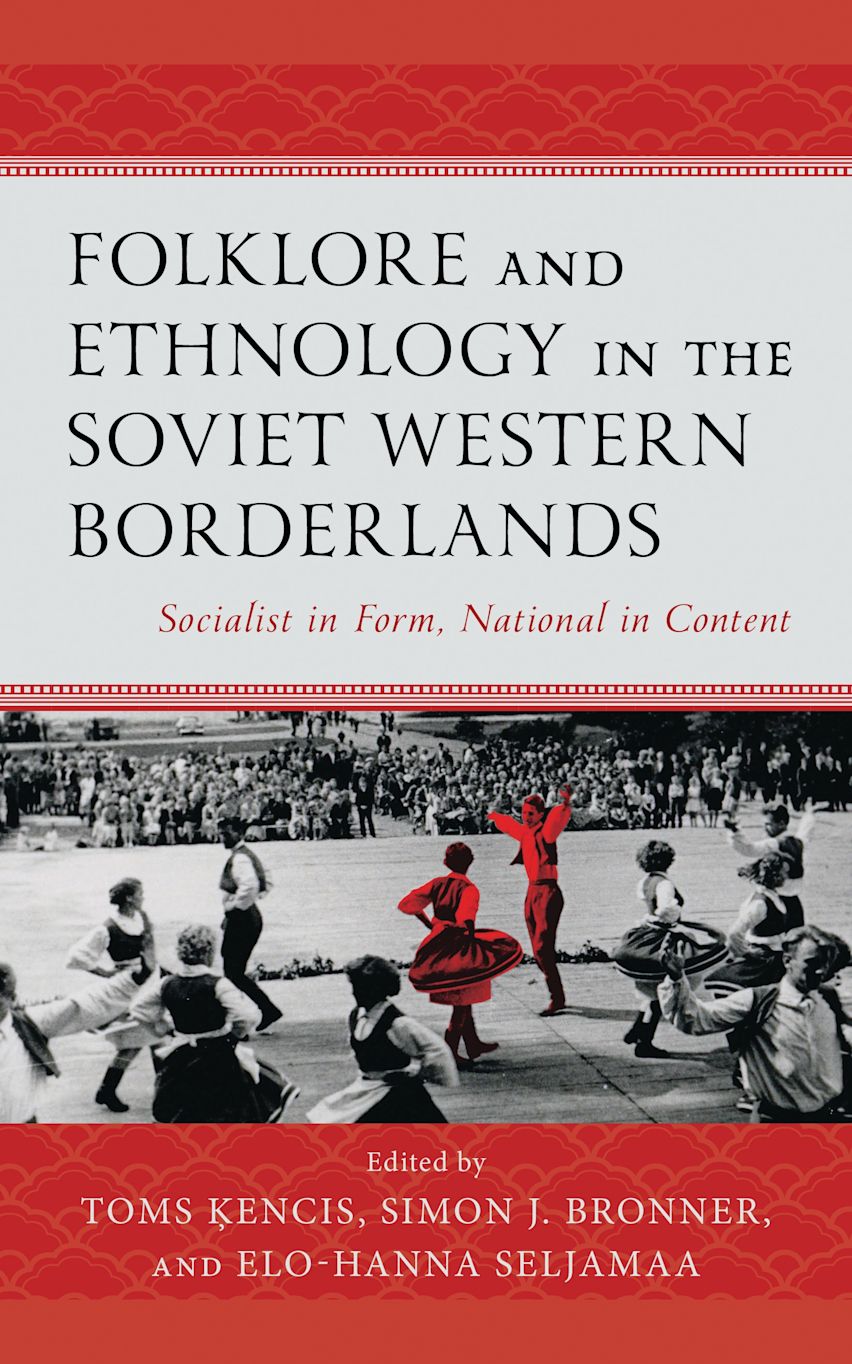Folklore and Ethnology in the Soviet Western Borderlands
Socialist in Form, National in Content
Folklore and Ethnology in the Soviet Western Borderlands
Socialist in Form, National in Content
This product is usually dispatched within 1 week
- Delivery and returns info
-
Free US delivery on orders $35 or over
Description
Thirteen international scholars assess the profound impact of Soviet-era movements to study, apply, and perform folklore as a priority in socialist policy-formation and culture-building. Representing generations who lived through and after Soviet occupation, they reflect on the consequences of state-supported promotion of folk arts in a region called the Western Borderlands that include Baltic countries, Ukraine, Poland, Slovakia, Belarus, Romania, and Hungary. In their incisive analyses, authors present original archival materials as well as ethnographic data to understand colonialist support for bottom-up folklore movements and resistance to them. Capping the volume is a timely consideration of Soviet orchestration of folkloristic work on present developments in conflicts of Russia with its neighbors and alignments with Western folkloristics and ethnology.
Table of Contents
Toms Kencis
Part I. An Inherent Paradox: National Form and Socialist Content
Chapter 1. Folklore and Nationalism in the Soviet Western Borderlands
Toms Kencis
Chapter 2. Bringing the Folk Community into the Future: On the Socialist Content of Communist Folkloristics
Joseph Grim Feinberg
Chapter 3. The Lithuanian Folklore Movement and Academe: Transforming Rural Tradition
Auste Nakiene
Part II. Multivocal Socialism: Agents and Agendas
Chapter 4. Being in Between: Laine Mesikäpp and Staged Practices of Estonian Traditional Songs
Janika Oras
Chapter 5. Ideological Tuning of Latvian Folk Ornament
Digne Udre
Chapter 6. The Dievturi Movement under the Soviet Regime
Gatis Ozolinš
Part III. Folk and the People: Education and Control
Chapter 7. On Self-Folklorization: Folk Art in Late Socialist Era Poland
Ewa Klekot
Chapter 8. Folkloristics in Moldova: Relations between Discipline and Performance
Jennifer R. Cash
Chapter 9. The Influence of Soviet Authority on the Formation of Latvian Staged Folk Dance
Elina Gailite
Part IV. Post-war Academia: Sovietization of the Discipline
Chapter 10 New Songs for a New Life: Soviet Folklore and Folkloristics in Western Ukraine
Pavlo Artymyshyn and Roman Holyk
Chapter 11. Confronting Soviet Colonialism: Folkloristics in Early Soviet Estonia and East Germany
Kaisa Langer
Chapter 12. The Search for Workers’ Folklore in Hungary
Gabriella Vámos
Afterword: Ghosts of Socialist Folkloristics in the Post-Soviet World
Simon J. Bronner
About the Contributors
Product details
| Published | Dec 08 2023 |
|---|---|
| Format | Hardback |
| Edition | 1st |
| Extent | 302 |
| ISBN | 9781666906530 |
| Imprint | Lexington Books |
| Illustrations | 8 b/w photos |
| Dimensions | 9 x 6 inches |
| Series | Studies in Folklore and Ethnology: Traditions, Practices, and Identities |
| Publisher | Bloomsbury Publishing |
Reviews

ONLINE RESOURCES
Bloomsbury Collections
This book is available on Bloomsbury Collections where your library has access.


































